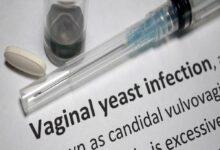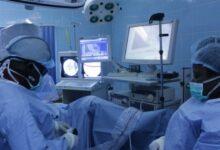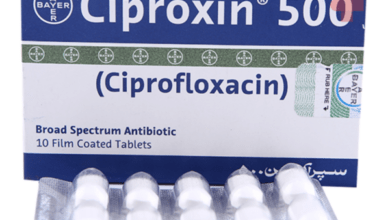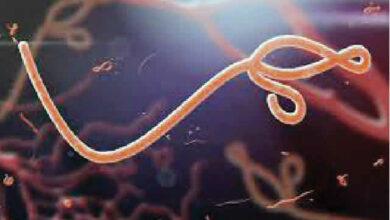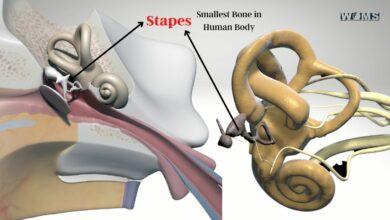
Top 15 Proper Nutrition for HIV Patients
Top 15 Proper Nutrition for HIV Patients – Nutrition plays a crucial role in the overall well-being of individuals living with HIV. A balanced and nutrient-rich diet can significantly impact their immune system, energy levels, and quality of life. HIV patients face unique challenges that require specific dietary considerations to maintain optimal health and manage the effects of the virus and medications. In this article, we will delve deeper into the top 15 proper nutrition guidelines for HIV patients, covering essential aspects such as macronutrients, hydration, meal patterns, and the importance of seeking professional advice.Top 15 Proper Nutrition for HIV Patients
Here are the top 15 Proper Nutrition for HIV Patients:
1. Eat a balanced diet:
A balanced diet is fundamental for everyone, but it becomes even more critical for HIV patients. A well-rounded diet that includes a variety of foods is essential to provide the necessary nutrients and support various bodily functions. Aim to incorporate a rainbow of fruits and vegetables, whole grains, lean proteins, and healthy fats. A diverse diet ensures a wide range of vitamins, minerals, and antioxidants that can strengthen the immune system and promote better overall health.
👉 Relocate to Canada Today!
Live, Study and Work in Canada. No Payment is Required! Hurry Now click here to Apply >> Immigrate to CanadaRead Also: 15 Best Freelance Graphic Designers in Nigeria
2. Get enough protein:
Protein is a cornerstone of proper nutrition for HIV patients. It is crucial for maintaining muscle mass, supporting tissue repair, and bolstering the immune system. Adequate protein intake can help the body fight infections, improve wound healing, and reduce the risk of muscle wasting. Include sources of protein such as chicken, fish, beans, lentils, tofu, nuts, and seeds in your meals.Information guide Nigeria
3. Choose lean protein sources:
While protein is vital, it’s equally essential to select lean sources to minimize saturated fat intake. Foods like fatty meats and full-fat dairy products should be limited. Instead, opt for lean cuts of meat, poultry without skin, and low-fat dairy or plant-based alternatives. These choices provide the necessary protein without excessive unhealthy fats.
4. Limit saturated and unhealthy fats:
Although fats are an essential part of a balanced diet, it’s crucial to choose the right types. High consumption of saturated and trans fats found in fried and processed foods can contribute to inflammation and increase the risk of heart disease. Instead, focus on incorporating healthier fats from sources like avocados, nuts, seeds, and olive oil.
Read Also: Top 15 MLM Companies with Proven Track record in Nigeria
5. Eat plenty of fibre:
Fibre is a key component in the diet of HIV patients. It aids in digestion, supports a healthy gut, and promotes regular bowel movements. Additionally, fibre can help manage cholesterol levels and stabilize blood sugar levels. Include whole grains, fruits, vegetables, and legumes in your diet to ensure sufficient fibre intake.JAMB portal
6. Stay hydrated:
Proper hydration is essential for everyone, but HIV patients may experience increased fluid loss due to medications or infections. Dehydration can exacerbate existing health issues and lead to fatigue and weakness. Make a conscious effort to drink plenty of fluids throughout the day, with a primary focus on water. Herbal teas, infused water, and hydrating fruits like watermelon can also contribute to meeting your fluid needs.
7. Avoid processed foods:
Processed foods often contain high levels of unhealthy fats, sodium, and sugar. These additives can negatively impact the immune system and overall health. Opt for whole, unprocessed foods whenever possible to ensure you receive the most nutritional benefits from your diet.Good morning My Love Message
👉 Relocate to Canada Today!
Live, Study and Work in Canada. No Payment is Required! Hurry Now click here to Apply >> Immigrate to Canada8. Limit sugary drinks:
Excessive sugar intake can weaken the immune system and contribute to weight gain, which can be especially concerning for HIV patients. Sugary drinks like soda and fruit juices are particularly high in empty calories. Instead, opt for water, herbal teas, or naturally flavoured water to quench your thirst without the added sugars.
Read Also: Top 15 Nigerian Social Media Management Services
9. Eat regular meals and snacks:
Consistent eating patterns are essential for maintaining energy levels and managing blood sugar levels. HIV patients may have increased energy needs due to the body’s efforts to fight the virus and heal. Aim to have three balanced meals and healthy snacks throughout the day to ensure your body receives a steady supply of nutrients.
10. Don’t skip meals:
Skipping meals can lead to nutrient deficiencies and compromise the immune system’s ability to function optimally. Even if you don’t have a strong appetite, try to eat small, nutrient-dense meals to ensure adequate nourishment.Romantic love message
11. Improve appetite:
Some HIV patients may experience a reduced appetite due to the virus or side effects of medications. If you face difficulties eating, speak with your doctor about potential solutions or medications to improve your appetite. They may recommend appetite stimulants or suggest meal planning strategies to make eating more appealing.
12. Manage weight loss:
Unintended weight loss can be concerning for HIV patients, as it may lead to muscle wasting and decreased energy levels. If you notice significant weight loss, consult your doctor to address the underlying causes and develop a plan to manage or prevent further weight loss. They can assess your diet and recommend nutrient-dense foods and appropriate caloric intake to help maintain a healthy weight.NYSC Portal
Read Also: Top 15 Places to Learn Digital Marketing in Nigeria
13. Seek professional advice:
Individuals with HIV have unique nutritional needs, and consulting a registered dietitian or healthcare professional with expertise in HIV nutrition is highly beneficial. A personalized nutrition plan can address specific challenges and support overall health and well-being. They can help you navigate any dietary restrictions, monitor nutrient intake, and adjust your diet based on your health status and treatment plan.
14. Get regular exercise:
Physical activity is beneficial for everyone, including HIV patients. Regular exercise helps maintain muscle mass, improves cardiovascular health, and enhances overall quality of life. Consult your healthcare provider before starting an exercise routine to ensure it’s safe and appropriate for your individual health status. They can help design an exercise plan that considers your specific needs and limitations.
15. Manage stress:
Living with HIV can be emotionally and mentally challenging. High-stress levels can impact appetite and overall health. Engage in stress-reducing activities such as meditation, yoga, or spending time in nature to support your emotional well-being. Finding healthy ways to cope with stress can positively impact your overall health and your ability to adhere to a nutritious lifestyle.
Read Also: Top 15 Nutritional Benefits of Fruits
Conclusion:
Proper nutrition is a cornerstone of managing HIV and supporting overall health and well-being. A balanced diet rich in fruits, vegetables, whole grains, lean proteins, and healthy fats can enhance the immune system, manage weight, and improve energy levels. Staying hydrated, avoiding processed foods and sugary drinks, and eating regular meals are essential for maintaining optimal health. Seeking professional advice and incorporating regular exercise and stress management techniques further contribute to the well-being of individuals living with HIV. Remember that every person’s nutritional needs may vary, so it’s essential to work closely with healthcare professionals to develop a personalized nutrition plan tailored to your unique circumstances. Taking proactive steps towards proper nutrition can empower HIV patients to lead healthier and more fulfilling lives.
Check JAMB RESULT
Check and Confirm: How much is Dollar to Naira
